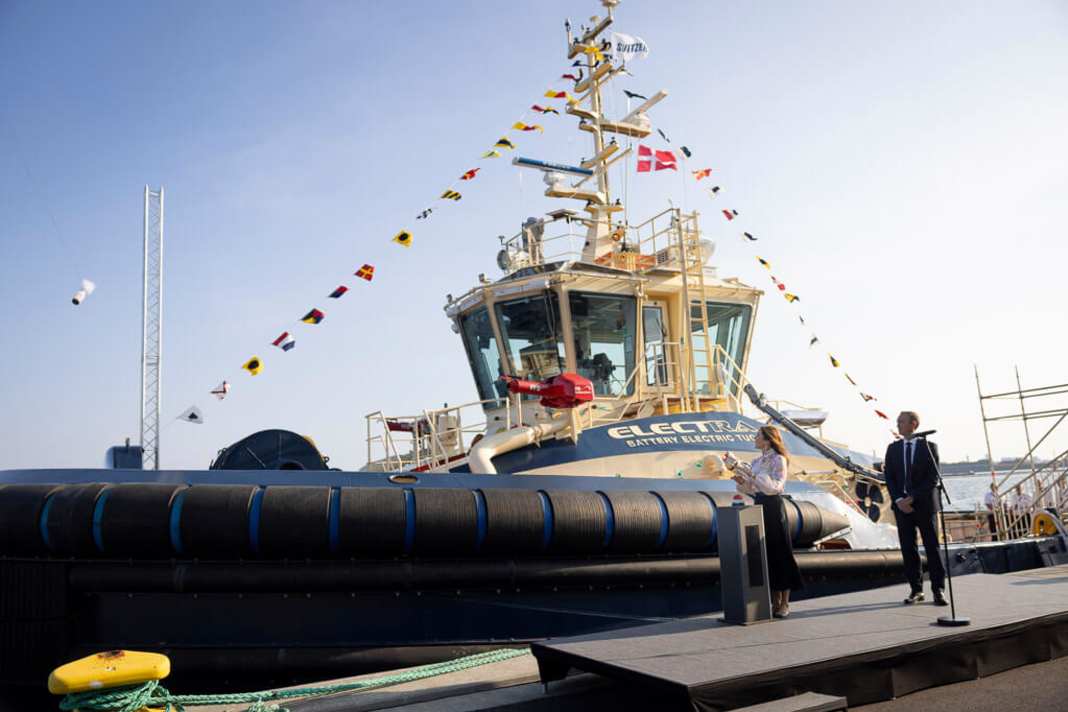




The "Svitzer Ingrid" is equipped with a battery of 1,808 kWh, which is roughly equivalent to the power of 23 modern electric cars, and can perform 90% of its tasks purely electrically. According to Svitzer, the electric tug will reduce CO₂ emissions by 600-900 tonnes per year compared to the existing tugs on the Öresund. Its home port will be Helsingborg in Sweden, where it will be recharged with renewable energy in the harbour.
"We have set ourselves the goal of becoming climate-neutral by 2040. Today is therefore an important milestone for us. Electrifying our ships is key to achieving this goal," says Kasper Friis Nilaus, CEO of Svitzer.
Facts and figures about the "Svitzer Ingrid" electric tugboat
- Operation: Hybrid tractor with 1,808 kWh battery (≈ 23 electric cars) and conventional diesel engine as a supplement
- CO₂ reduction: 600-900 tonnes/year compared to existing Øresund tugs
- Charging: Full charge approx. 3.5 hours. In practice, around 1 hour should be sufficient for operation.
- Electricity share: approx. 90% of the tasks run on battery power
- Dimensions: Length 25.4 m, width 12.7 m, draught 5.4 m
- Tractive force: 70 tonnes bollard pull
- Home port: Helsingborg (charging with renewable energy)
Svitzer operates more than 450 tugs worldwide, which tow tankers, container ships and cruise ships into harbours. "Svitzer Ingrid" is the company's first almost completely battery-powered tugboat. A second electric tugboat has been ordered for 2026, with more in the pipeline. The shipping company has been using four hybrid tugs in Australia since 2016.
Kasper Friis Nilaus emphasises that a new infrastructure in the ports is required for the widespread introduction of electric tugs: "Ultimately, the ports will need a charging infrastructure similar to that for cars. Shipping companies can't do it alone - we need to work with decision-makers and local communities across the industry to develop sustainable green solutions."
